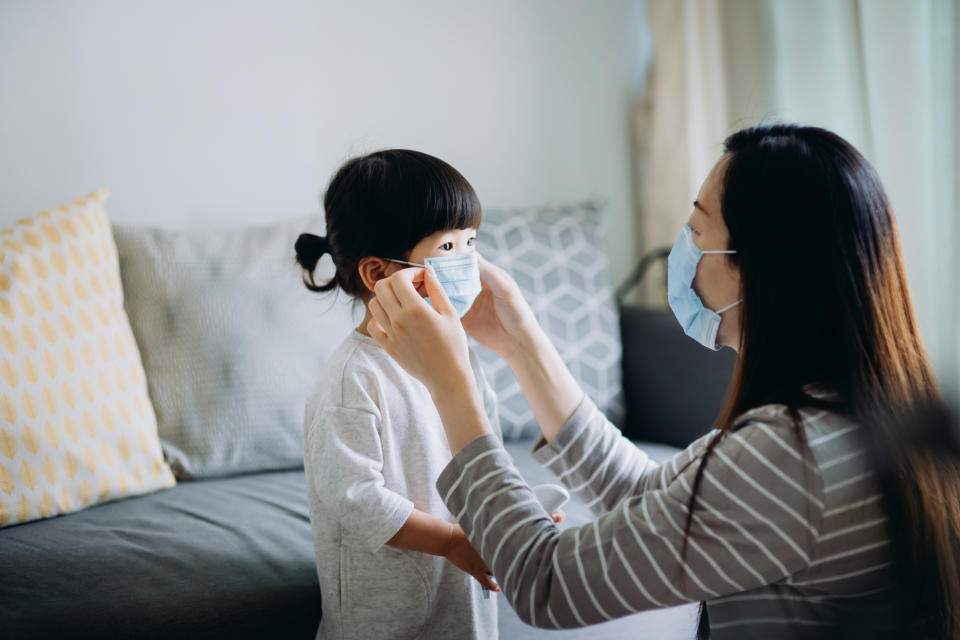Canadians pleased with government reaction to pandemic: study

A new survey takes the temperature on how people around the world feel about how their country’s response to the spread of COVID-19. It turns out that most approve of how their respective nations have stepped up during the pandemic, including Canadians. The vast majority of those surveyed in Canada also admit that their lives have changed considerably as a direct result of the coronavirus.
The Pew Research Center conducted the survey between June and August on more than 14,000 adults in 14 countries: the United States, Canada, Belgium, Denmark, France, Germany, Italy, the Netherlands, Spain, Sweden, the United Kingdom, Australia, Japan and South Korea.
Overall, it found that an average of 46 per cent felt more national unity than before the outbreak, while 48 per cent thought divisions have grown. One country that skirted this trend was the U.S., where, 77 per cent of Americans surveyed said they are further divided than before the pandemic was declared, compared to 18 per cent, who felt the country is more united.
Amongst all the countries surveyed, more than half — 58 per cent — said their lives have changed a great deal or a fair amount as a result of COVID-19.
Most give government responses a thumbs up
Of the 14 countries surveyed, 73 per cent felt their own country had done well with dealing with the outbreak, compared to the 27 per cent who felt it had been handled poorly. Within those nations, however, there were some discrepancies. About 70 per cent or more within Canada, Denmark, Australia, Germany, the Netherlands, South Korea, Italy and Sweden felt their country’s response to the coronavirus was strong. But the U.K. and the U.S. showed more divided opinions on their government’s performance, feelings that are largely influenced by political leanings.
In America, 76 per cent of Republicans and independents who lean right said their government has done a good job. In comparison, only a quarter of Democrats and those with Democratic leanings agreed, leading to a 51 percentage point difference.
Many lives changed, women more than men
When it comes to how much life has changed as a result of the pandemic, a median of 58 per cent across all countries surveyed felt life had changed a great deal or fair amount, while 42 reported that not much had changed.
In Canada, about two-thirds felt their lives have changed a fair amount as a result of the pandemic.
When it comes to whose lives have changed, in 12 of the 14 countries surveyed, women were more likely to have had their lives changed as a result of COVID-19, compared to men. These changes could manifest in more unpaid labour around the home, like taking care of children and housework, conditions that were intensified by the closures of child care services and schools.
Countries split on being divided or united
When it came to feelings on whether the pandemic has brought each country together or had caused a deeper divide, people in many countries felt split. A median of 46 per cent said their country is more united as a result of the COVID-19 outbreak, while 48 per cent felt their country is more divided. More than half those surveyed in Canada, Sweden, South Korea and Australia felt their countries stand more united since the beginning of the pandemic. In the U.S., three-quarters felt their country is more divided as a result, while two-in-ten Americans felt more united than before.
Feelings of unity or division appeared to be tied to how those surveyed felt about distrust. In many countries, those who felt people can’t be trusted were more likely to say their country is more divided, compared to those who said most people can be trusted.
International cooperation would have helped
The majority of respondents surveyed — 59 per cent — felt that if there had been cooperation between countries, this would have resulted in a fewer number of coronavirus cases in their country. Meanwhile, 36 per cent said such cooperation wouldn’t have made a difference in lowering case numbers.

 Yahoo Sports
Yahoo Sports 


